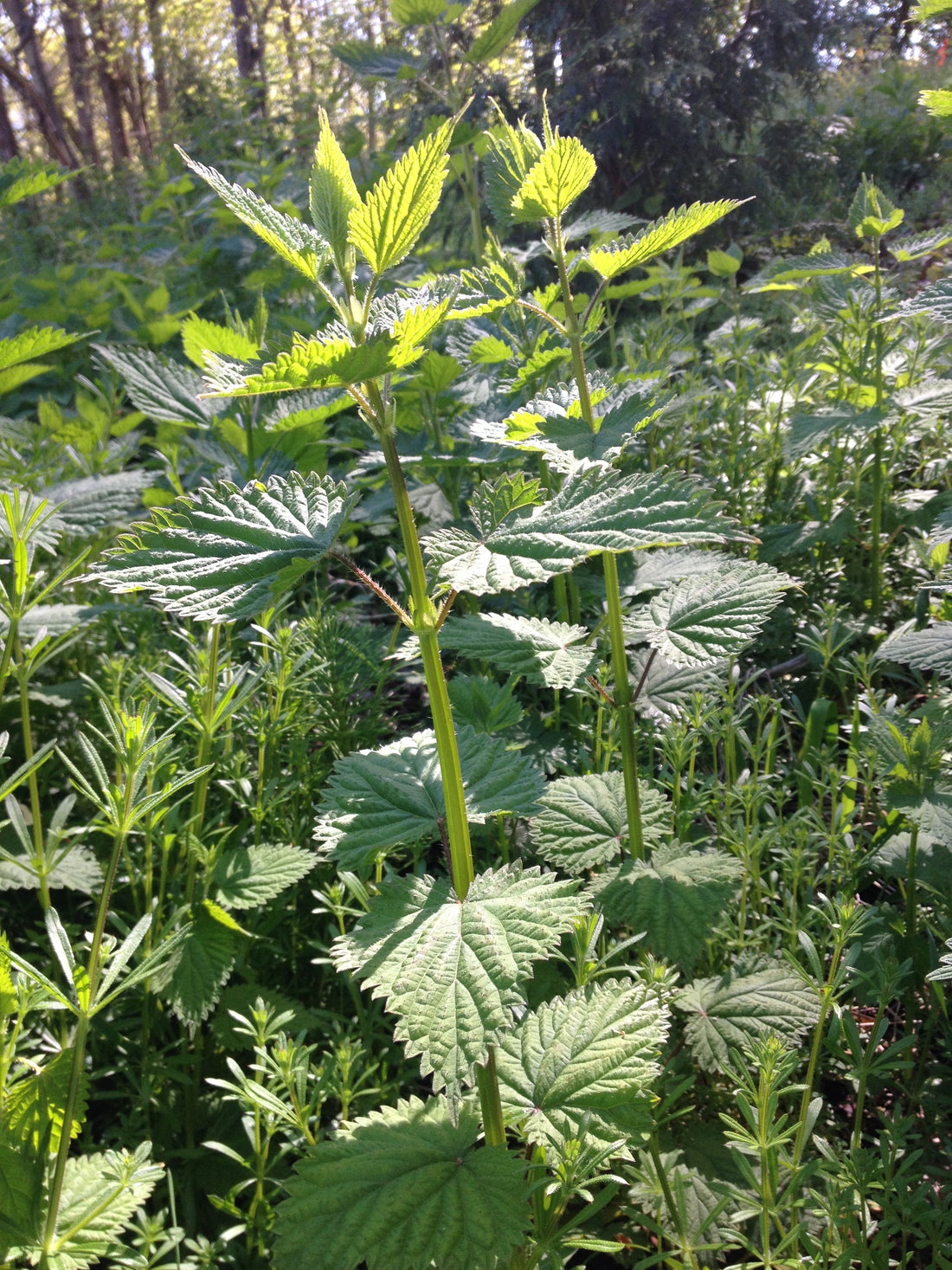
Nettle
Share
A plant that grows abundantly and well in the Pacific Northwest, many people are familiar with it only because of its sting (its other name is Stinging Nettle). This “sting” comes from little hairs that cover the stem and much of the leaves of this plant and when brushed against or grabbed will impart formic acid to the skin, which causes a mild burning/stinging sensation that can last for hours. When dried, it loses much or all of this property, and when cooked or made into a tea or extract, it loses this effect entirely, which is why we can use it in food and medicine.
I like to describe nettle as a “dark, leafy green.” It can be added to soups, stir fries, baked into lasagna, made into pesto, etc. when collected (carefully) fresh. It is very high in minerals, including calcium, iron, and magnesium, which when consumed in food or as a “long infusion”, which means soaked in either hot or cold water overnight or at least 4 hours, strained, and drank, the many minerals are in the liquid and can be readily absorbed and utilized by the body in this form.
Traditionally, the leaf has been used as a kidney tonic and diuretic, helping to move fluid, lessen edema, to break up stones, and ease discomfort in the kidneys or bladder. It has also been used as an anti-inflammatory, by inhibiting prostaglandin formation , for helping with the pains of arthritis and other joint inflammation or injuries to tendons, ligaments, or muscle. Nettle leaf also has an antihistamine effect, particularly when it is freeze-dried, so can help with the effects of seasonal and other air-born allergies, helping with hives and other allergic skin reactions.
Nettle leaf is considered a “tonic” herb in herbal medicine, meaning that it is strengthening and beneficial for the body over time. It is a nutritionally-rich herb and a useful medicine.
The nettle root also has an affinity for the urinary tract, and is particularly used for its positive effect on prostate health. It helps reduce inflammation, inhibits the growth of prostate cells, and can help with urine flow and comfort. Nettle root appears to interfere with the formation of the stronger-acting testosterone, which is linked to prostate inflammation, such as benign prostatic hyperplasia.
